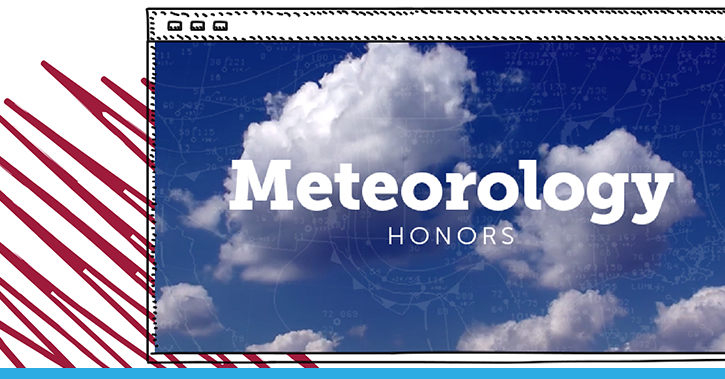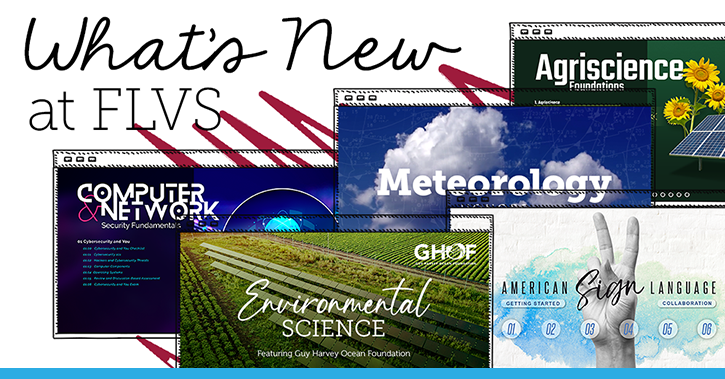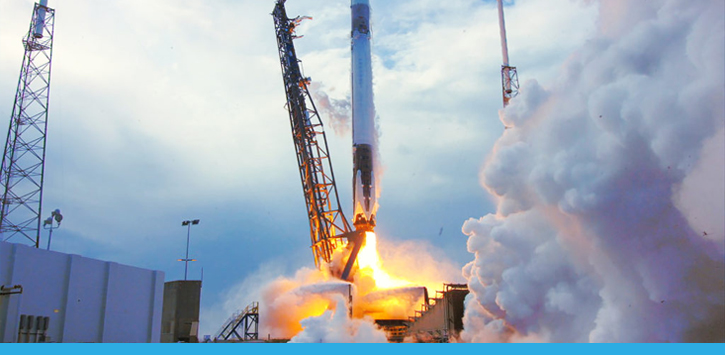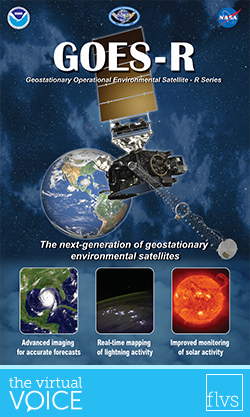Meteorology
What’s New: Meteorology Honors
By Florida Virtual School on March 19th, 2021

Weather can seem unpredictable, but with historic data and powerful technology, professionals are able to provide daily forecasts and severe weather updates to people around the world within minutes. These updates may come in handy when scheduling your next beach day or picnic, but they are also crucial for professionals in industries like transportation, construction, and agriculture when making decisions about future and daily operations.
Continue readingNew Courses Offered by Florida Virtual School
By Florida Virtual School on July 31st, 2020

Florida Virtual School (FLVS) develops an average of nine new courses every year. Each course is carefully designed and developed by the FLVS Curriculum Development Team to ensure student success. This year, we’re excited to announce five new additions to our high school course options!
Continue readingFLVS Follows Science on Its Way to Space
By Guest Blogger on April 30th, 2018

On April 2, 2018, the SpaceX Falcon 9 rocket blasted into space with the Dragon spacecraft – sending fascinating science experiments and supplies to the International Space Station.
FLVS was invited to share the experience with our students and followers through social media, including a behind-the-scenes tour of NASA facilities at Kennedy Space Center prior to launch. Continue reading
FLVS Attends GOES-R Satellite Launch
By Florida Virtual School on December 7th, 2016
 On Saturday, November 19, I had the privilege of watching the GOES-R weather satellite launch from Kennedy Space Center.
On Saturday, November 19, I had the privilege of watching the GOES-R weather satellite launch from Kennedy Space Center.
Now you may be wondering what GOES-R stands for. It’s the Geostationary Operational Environmental Satellite, a satellite system that orbits the earth and sends data back to National Weather Service computers. The R indicates what number or version the GOES satellite is on, so there have already been versions A-R. GOES-S is slated to launch next year and is the twin to GOES-R.
Of course, weather satellites get launched all the time, so why would this one be any more special than the others?
Well, right now we receive images of satellite scans every 30 minutes or so. The GOES-R satellite will provide data at least every five minutes, and in some circumstances every 30 seconds! So not only will it be five times faster than current weather satellites, but it will also gather three times more data and it will have four times better resolution. Continue reading
